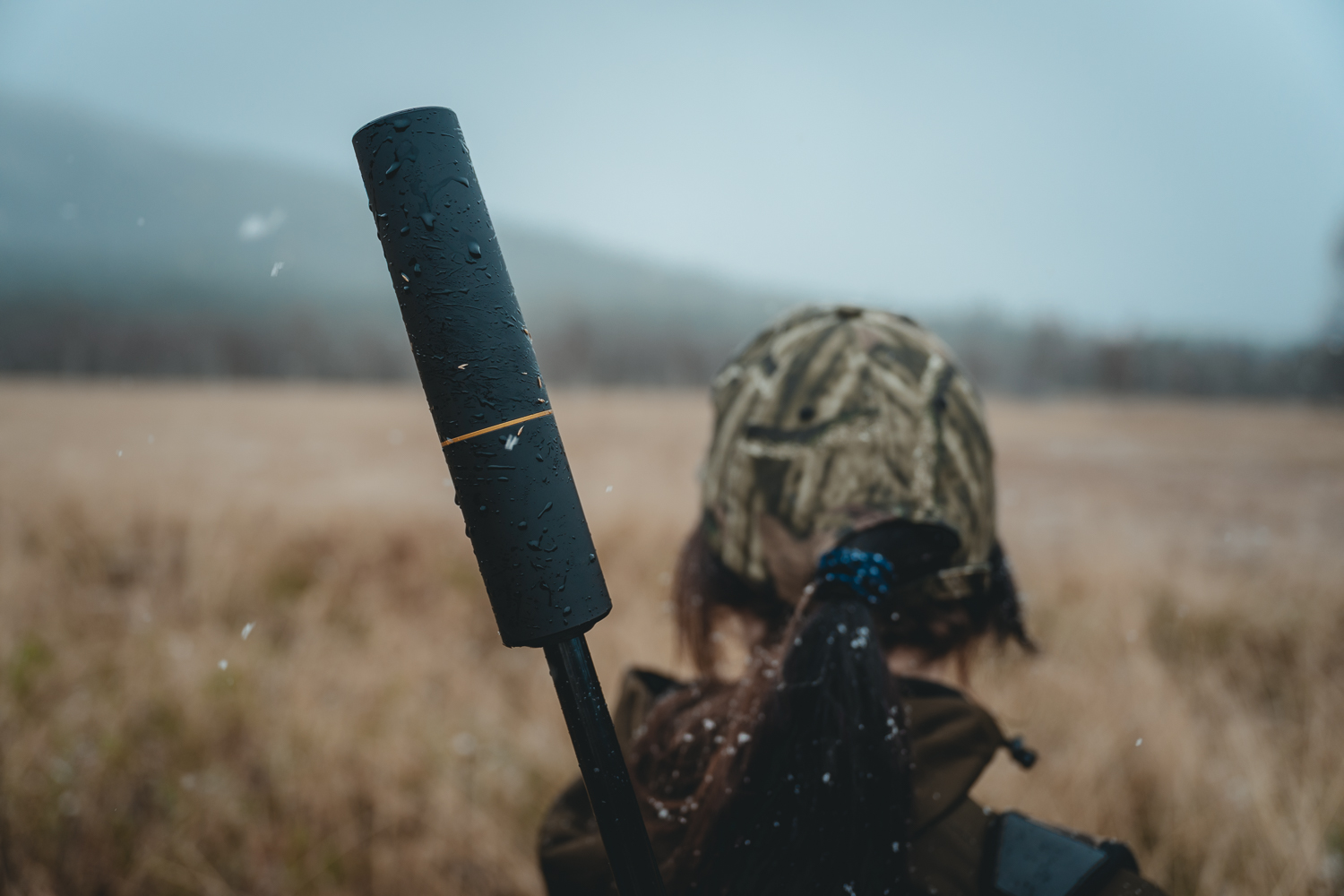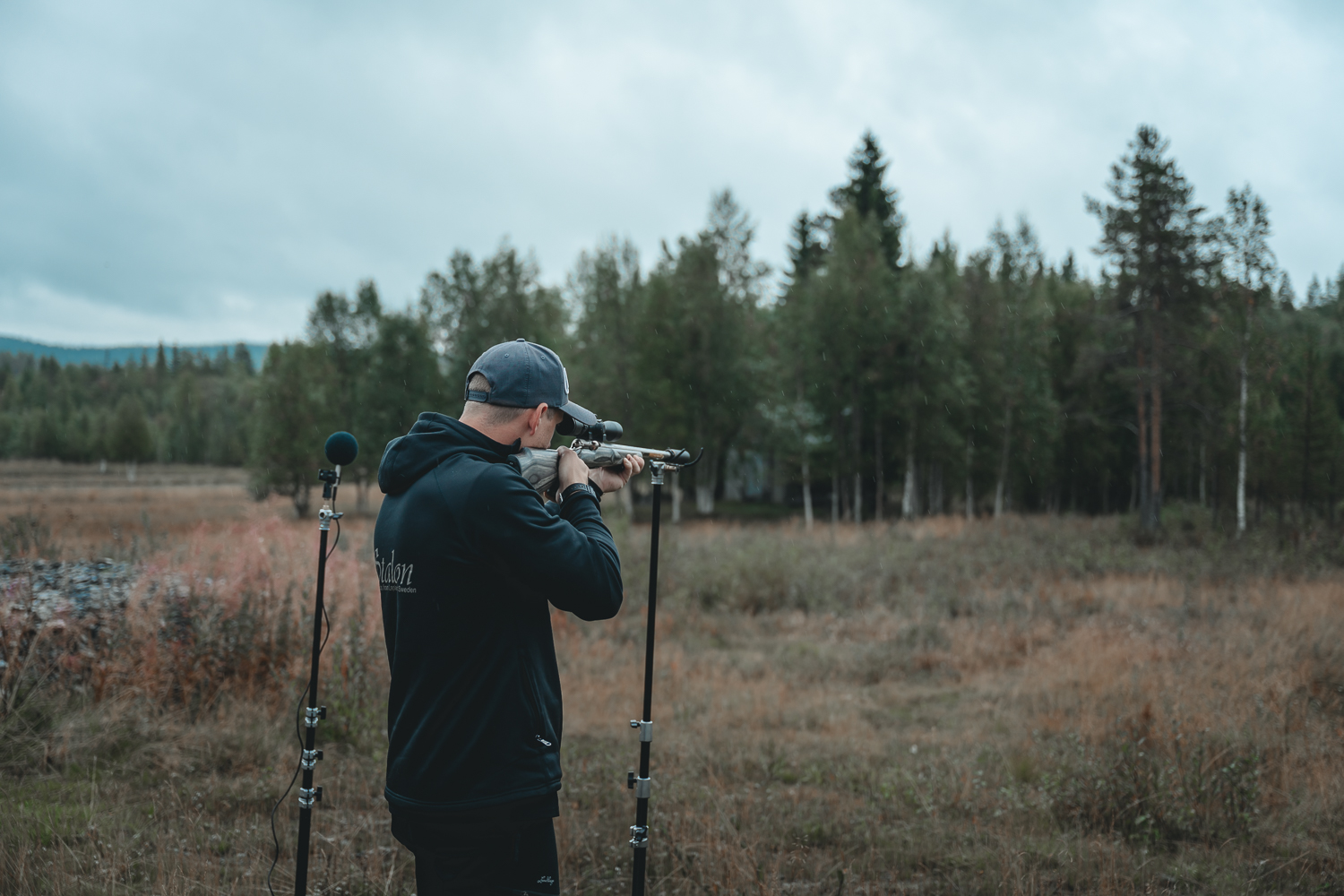How to Prevent Moisture and Rust in Your Silencer
A silencer is a precision tool exposed to extreme conditions every time you use it. Rapid temperature changes, corrosive gunpowder residues, and challenging weather conditions all affect the material. One of the most common questions we receive concerns moisture in silencers and why it is so important to dry them after use. In this article, we go deeper into the physical and chemical processes behind condensation, what happens inside your silencer, and how to best take care of it for long service life and consistent performance.

WHY DOES MOISTURE FORM IN SILENCERS?
There are three main reasons:
1. Condensation during firing
When you shoot, hot powder gases flow through the silencer. If the outer shell is cold (for example, when hunting in freezing temperatures), the gases cool rapidly. Some of the combustion by-products contain water vapor, which condenses on the cold metal surfaces and forms small droplets.
2. Temperature fluctuations
When you bring a cold firearm from freezing temperatures into a warm room, condensation forms. Warm air contains more water vapor than cold air. When it meets the cold silencer, the vapor cools quickly and turns into visible droplets inside the silencer.
3. Moisture from weather and environment
Hunting often takes place in humid conditions; rain, snow, fog, and high humidity. Water can enter both through the muzzle and at the threads, remaining trapped inside the silencer.

WHAT HAPPENS IF MOISTURE REMAINS?
Moisture combined with combustion residues (salts, powder, metal particles) creates an aggressive environment. Even stainless steel and anodized aluminum can be affected over time. The process is similar to what happens in a barrel; without cleaning, rust and corrosion form, reducing lifespan and potentially impairing the silencer’s performance.
It can also cause parts to seize, making the silencer difficult to disassemble without tools. In the worst case, material damage can occur when trying to separate the components.

HOW TO AVOID PROBLEMS - OUR BEST TIPS
- Always remove the silencer after use. Never leave it on the firearm during storage.
- Let it dry in a warm and ventilated space. Place the silencer with the muzzle end facing down so that both water and condensation can drain out more easily.
- Inspect regularly. Look inside the silencer; if you see small droplets or discoloration, allow more drying time.
- Maintain with oil. A thin film of oil inside the silencer acts as protection and reduces the risk of corrosion. Also, lubricate the threads with silencer grease.
- Clean when necessary. For centerfire calibers, regular drying and maintenance are usually enough, while rimfire calibers require more frequent cleaning since they leave more residue.

PREVENT MOISTURE DAMAGE AND EXTAND LIFESPAN
Moisture in a silencer is not a sign of poor quality. It is a natural consequence of physics and the environments we use our firearms in. The important thing is to understand why it occurs and to establish simple routines for maintaining your silencer. By drying it thoroughly, storing it correctly, and maintaining it with oil when needed, you significantly extend its service life and ensure it performs as expected.











